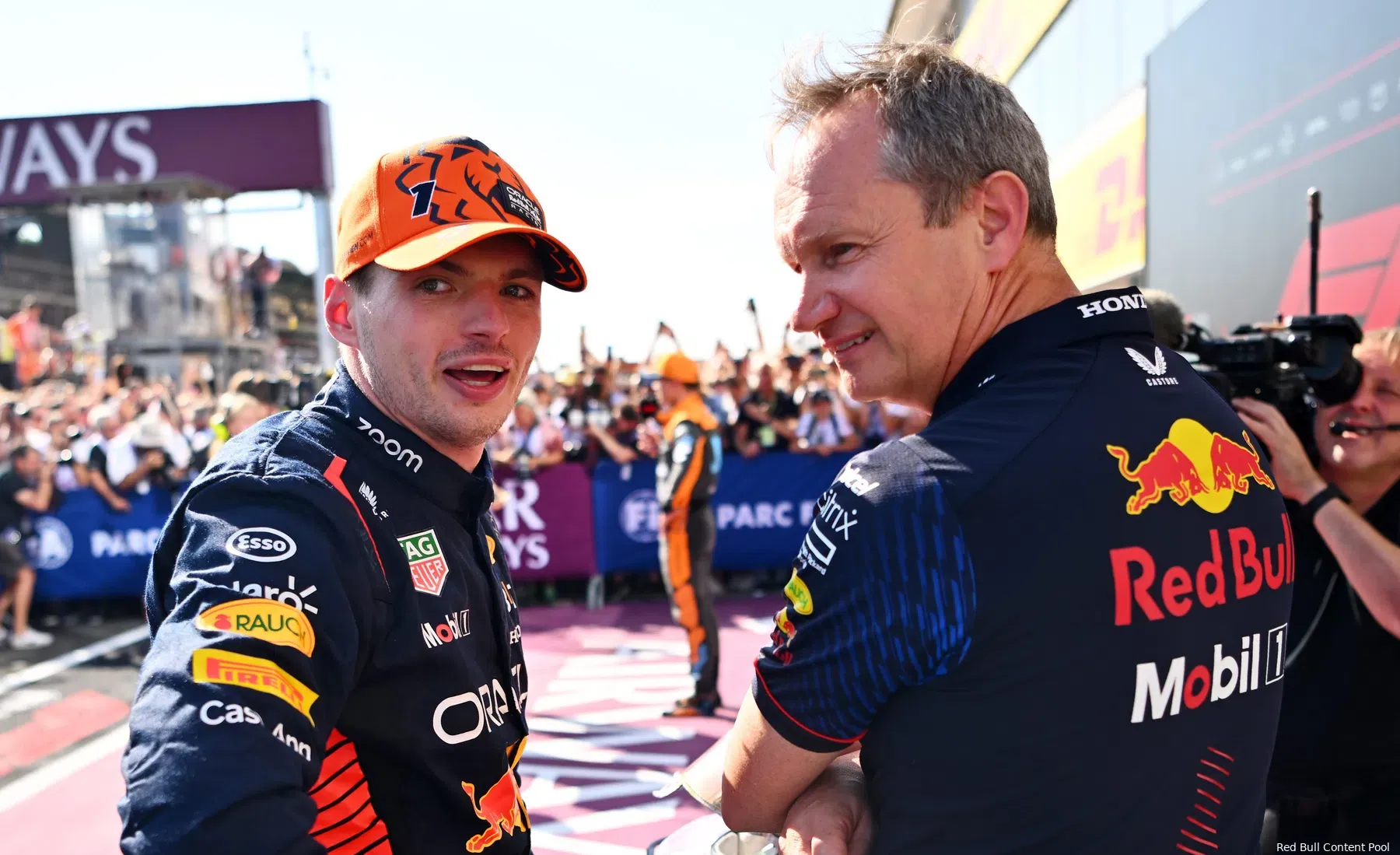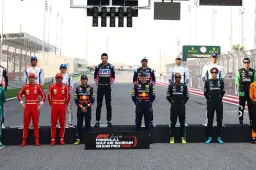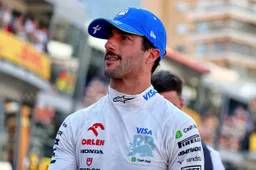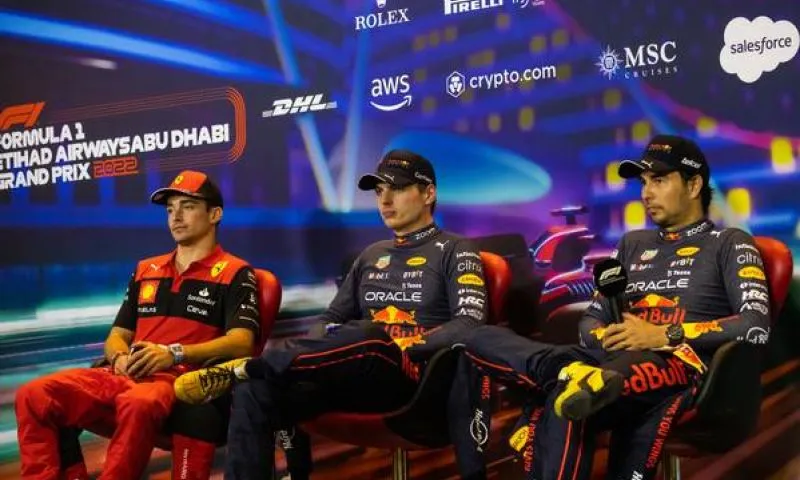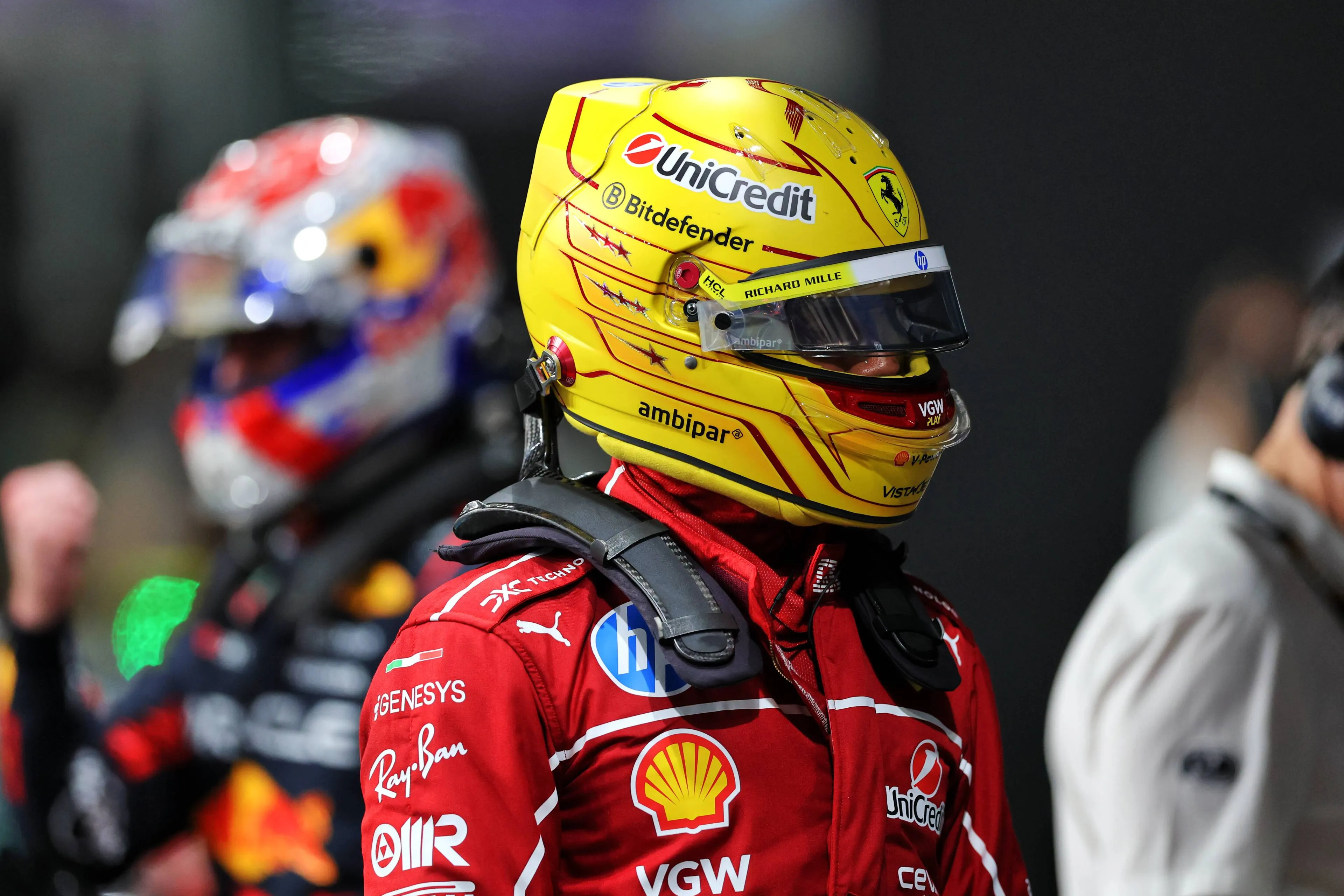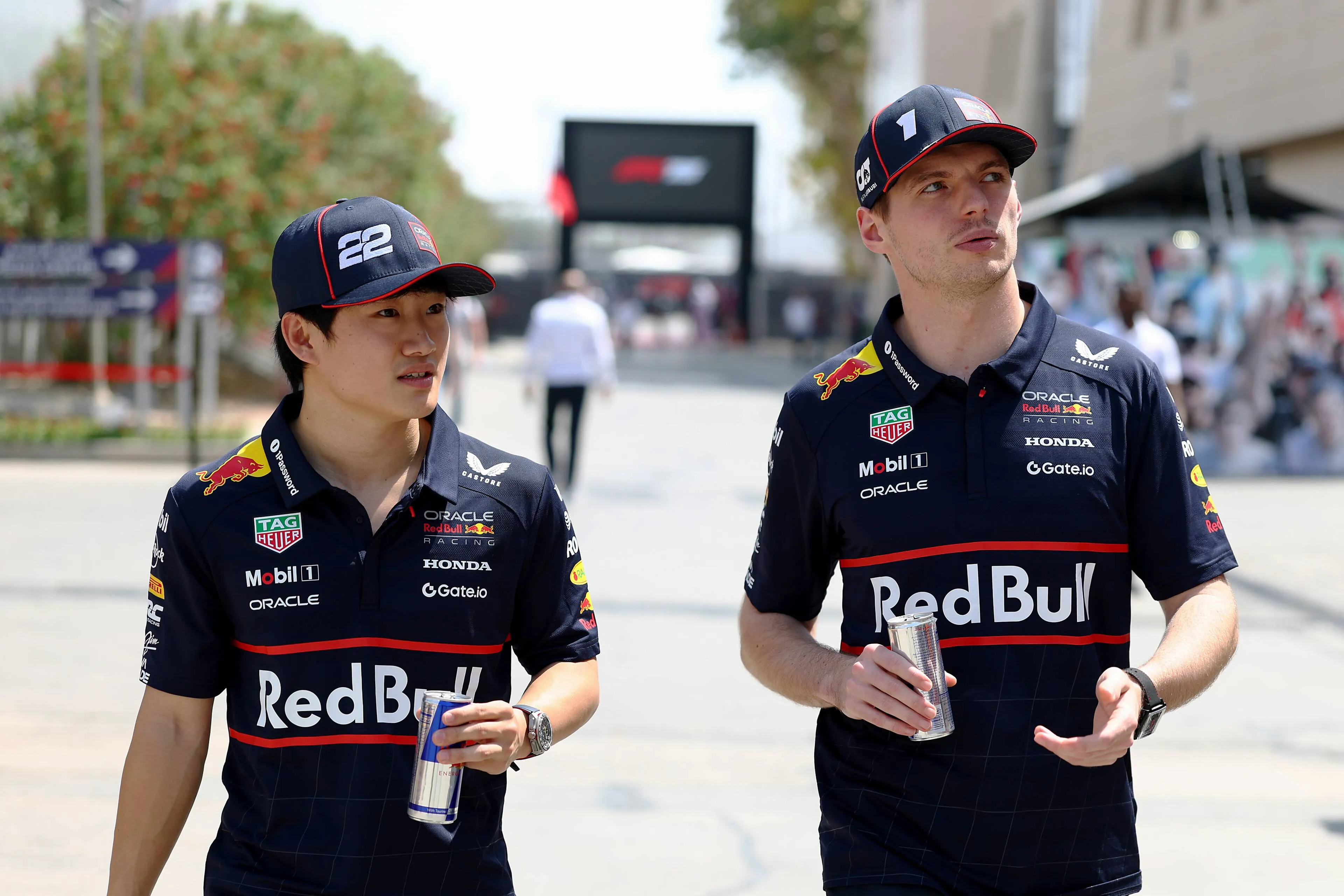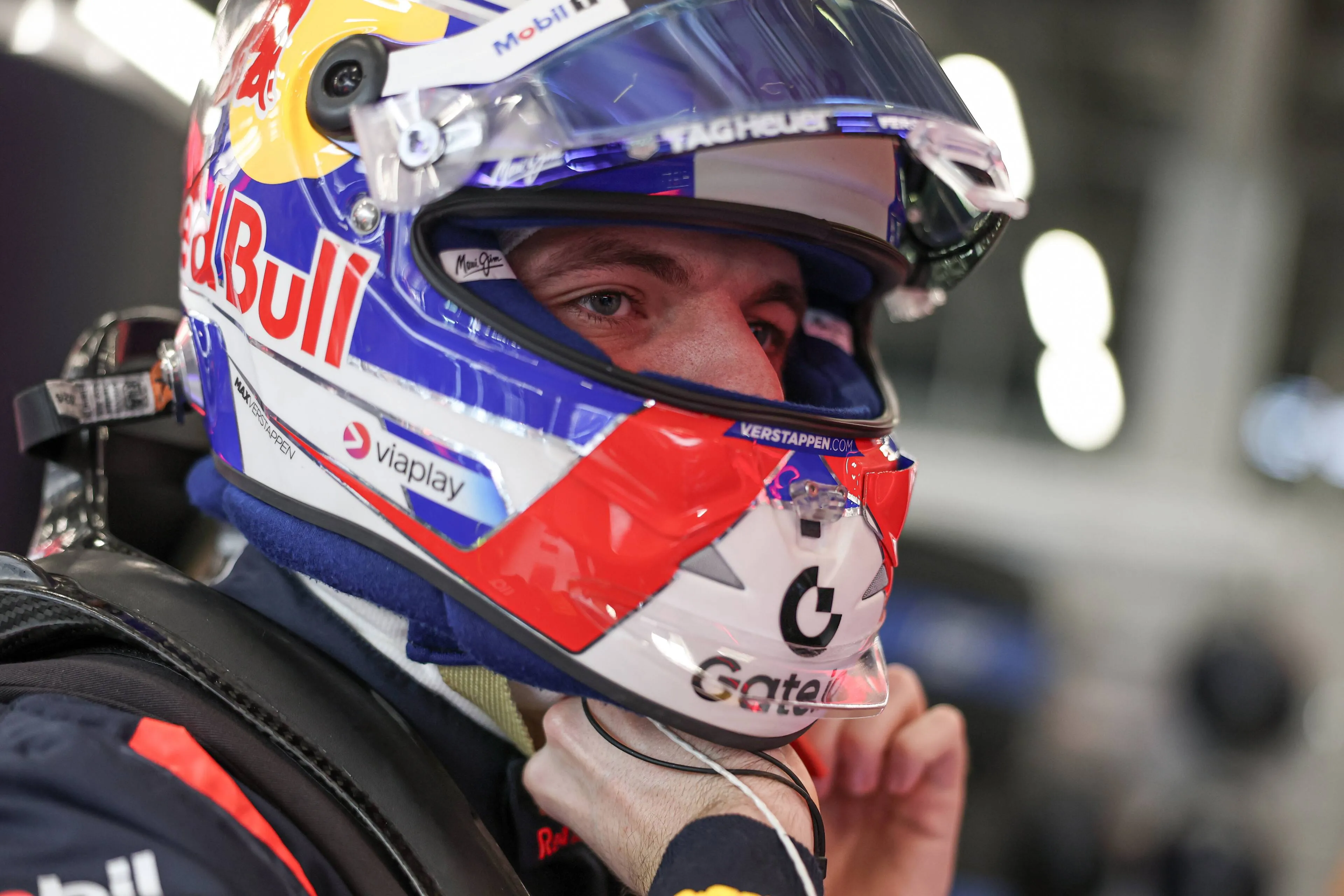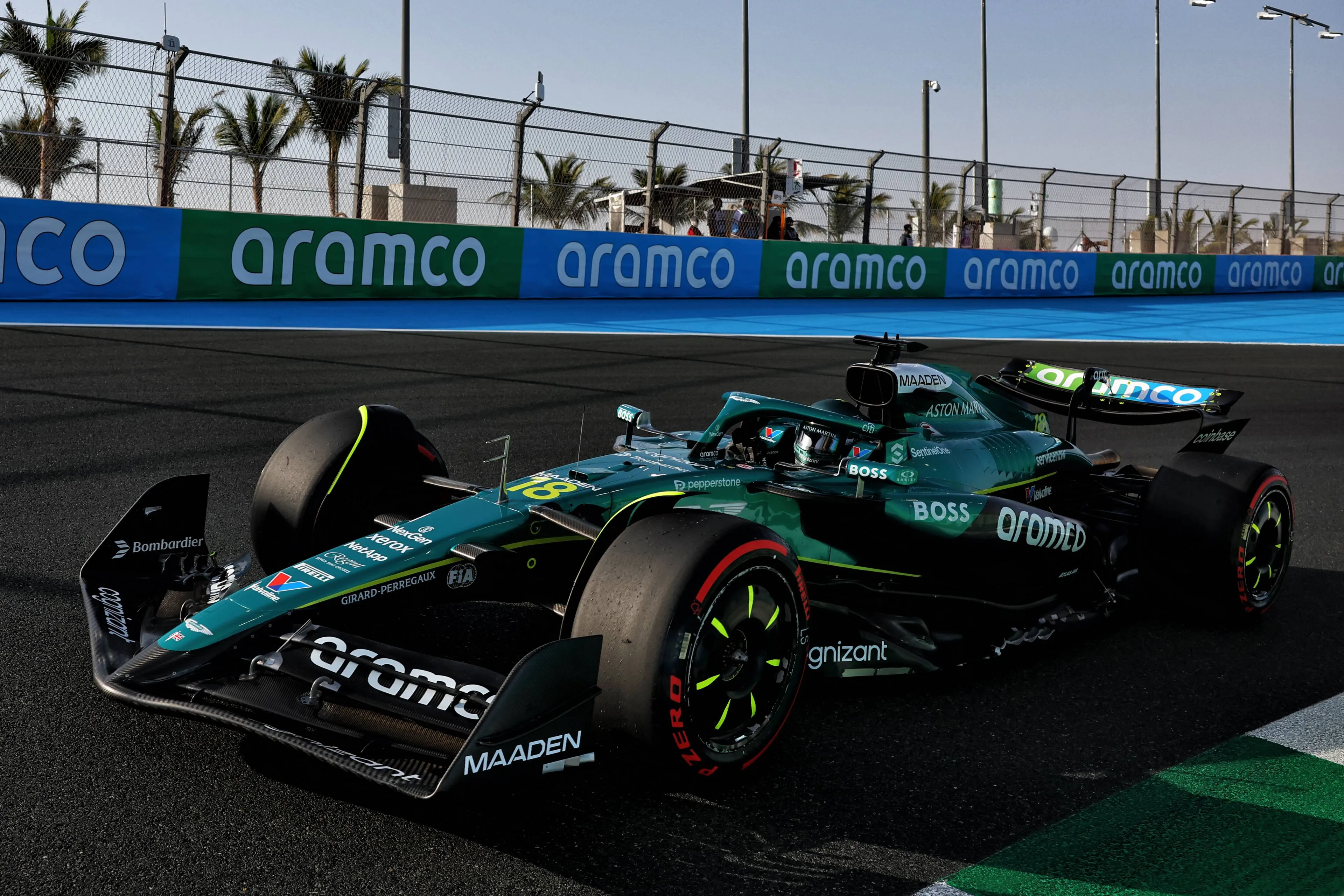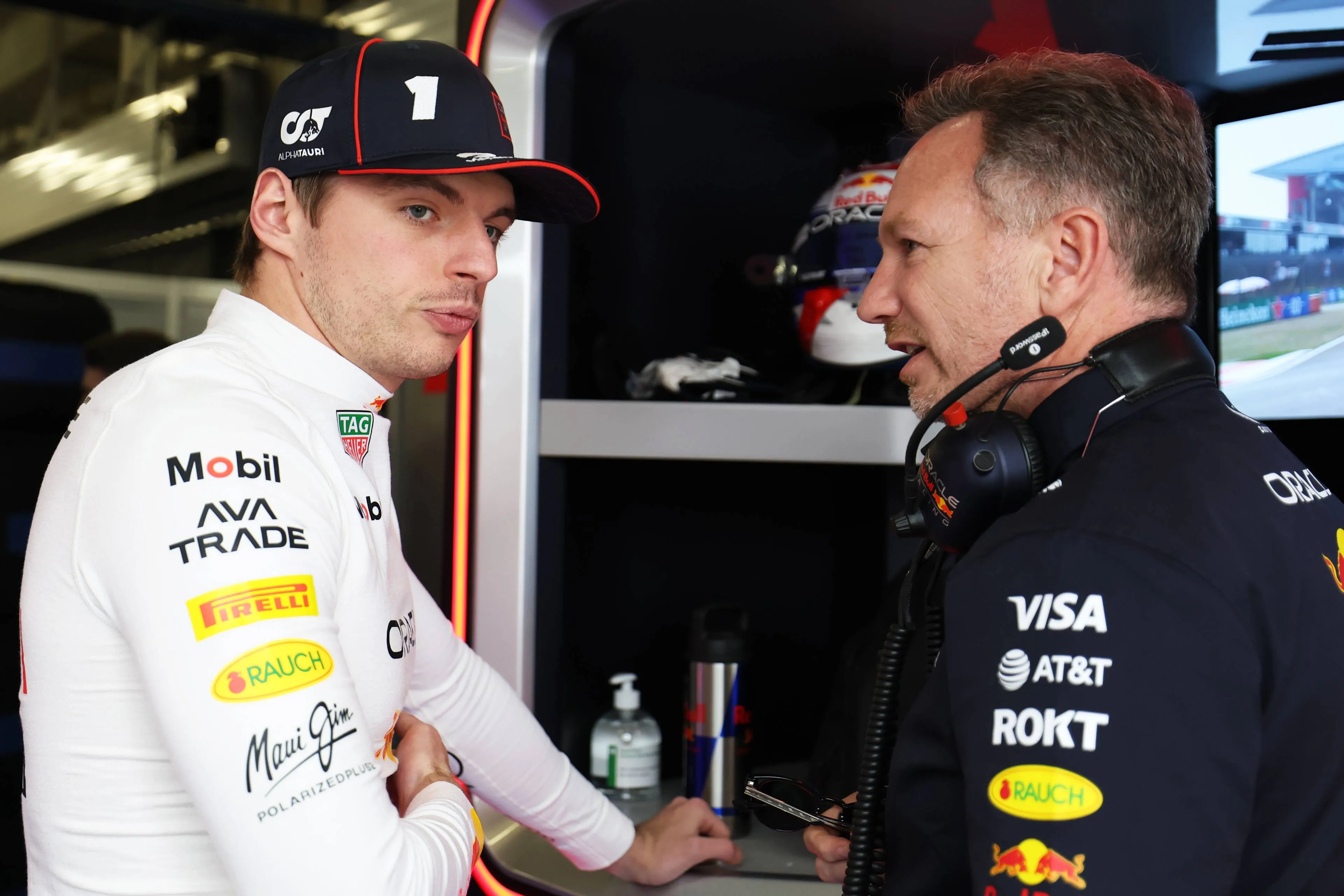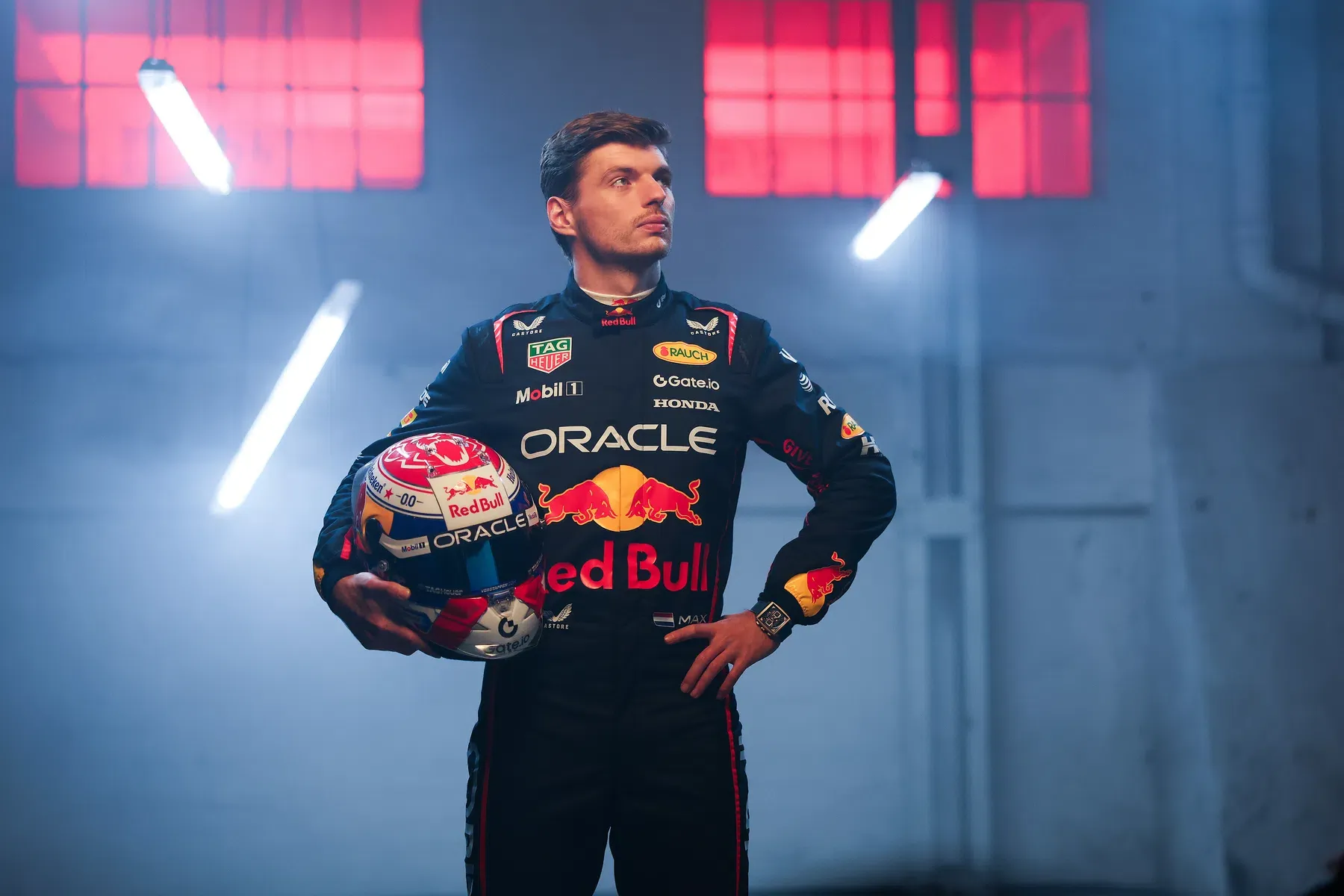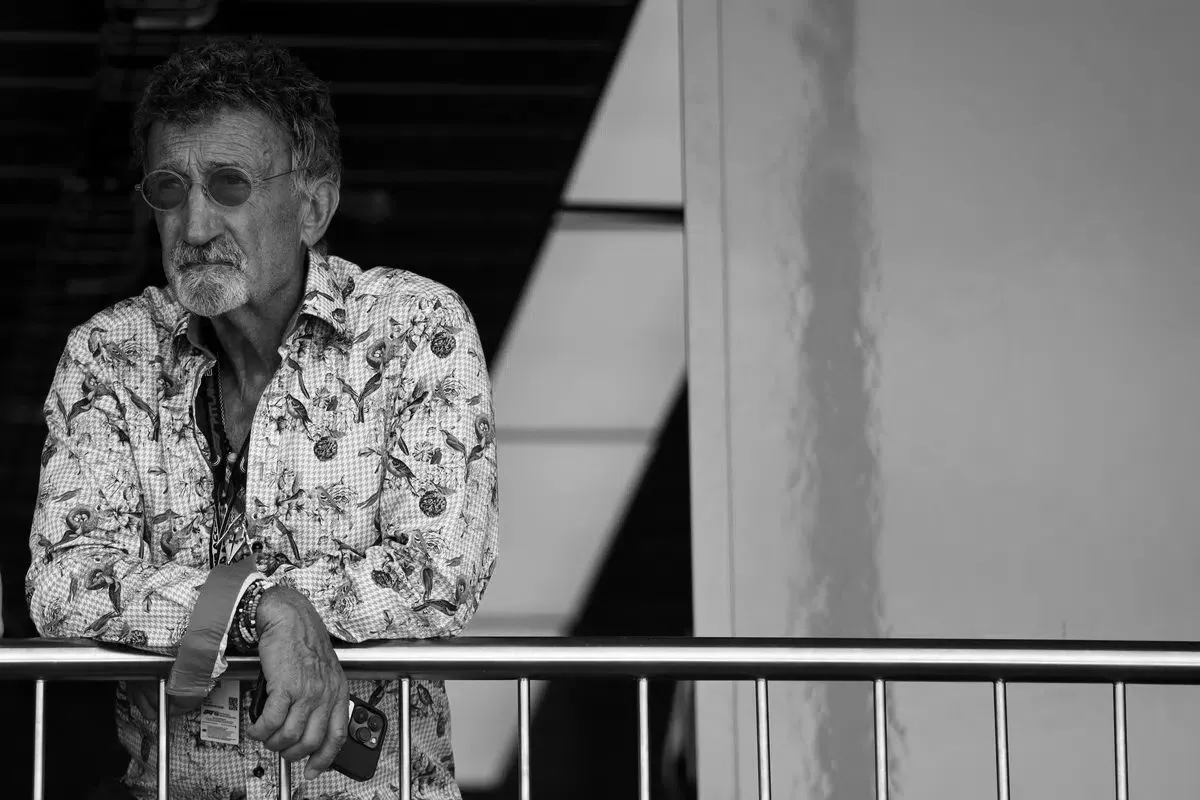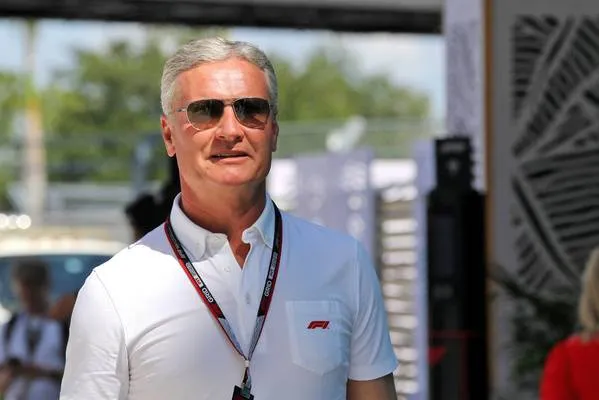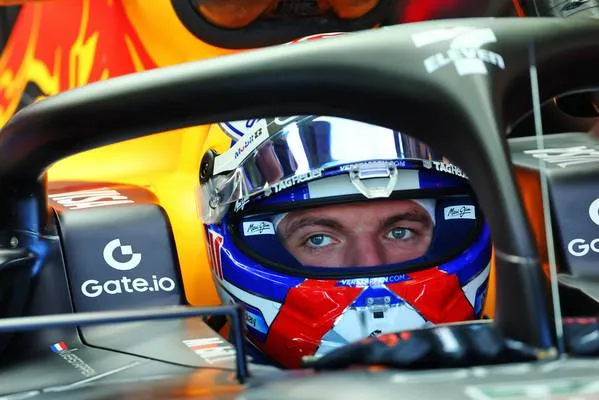Paul Monaghan has been a valued asset within Red Bull Racing since 2005. The Chief Engineer himself is very light-hearted about it, but his role within the team is immense. In an exclusive interview with GPblog, Monaghan spoke at length about his role within the team, why he enjoys this work so much and why he wants to continue for years to come.
It is the Friday before the race weekend in Imola when an appointment is scheduled with 'Pedals', as the Chief Engineer within the team is affectionately called. The nickname has its origins in Monaghan's early years in F1. Then 1990, he worked in McLaren's design centre, drawing pedals for Gerhard Berger on several occasions. A tall driver for whom pedal tuning was just a little trickier. Those pedals Monaghan drew so often that the nickname 'Pedals' has stuck with him 34 years later.
Monaghan is not one for many interviews. He prefers to stay a bit more in the background, as will be shown in the interview. Very modest, something perhaps not at all befitting someone with his CV, but it does him great credit. Paul doesn't take himself very seriously, loves what he does and walks the paddock with a smile.
A question I always like to start with: why are you Chief Engineer of the Racing Company?
Paul Monaghan (PM): "No idea. They should have looked for someone better which wouldn't be difficult to find. So I guess I was the least bad alternative (with some flair for self-deprecation). It's a great privilege and I was in the right place at the right time and a huge element of luck came my way. I wouldn't want to say anything more."
Why do you like it?
PM: "It's an evolving challenge. You never quite know what you're going to face. You're always learning something. I have the great privilege of it being quite a broad role. So, whatever needs attention gets attention. And that's a good challenge. It can get a bit busy. But that's the best answer I can give."
How can I best describe your role, how should I see it?
PM: "[It's about] Short-term, long-term. Troubleshooting. Try to help the car evolution. Just try to make it [the car] better in any way we can. Whether that's through reliability, anything we can offer performance-wise, anything we can do operationally to make it better. It doesn't matter. It's a race against nine other teams. And that race doesn't slow down or ease up. No one has any sympathy for anybody else. So get the best out of what we've got every week."
Can you give examples of that?
PM: "I could. But it might be a bit awkward. So that would be like letting nine other teams know some of our strengths and some of our weaknesses. So ask me at the end of the year, and I'll see if I can offer you something. But sorry, I'd rather not because what's immediately in my mind would be beneficial to others. So, sorry."
Then maybe a bit more about your role? How do you ensure that the best is brought out of the car? While you might not be able to give details about the car, maybe you can explain what exactly you can do?
PM: "Okay, so with the current cars, as you may have seen, they are particularly sensitive to ride height, which is a ground effect car. So that has been an evolution to try and learn what we could do with the previous generation of car for front ride height primarily. And now we've taken the lessons from that and we apply it over more of the car. So there's one example."
"Clearly, something as obvious as the power units, you can say, 'right, how do we get the most out of that?' We've got the power trains and HRC (Honda Racing Corporation) people, but we've still got to put it in and we've still got to operate it correctly. You've still got to look at it and say, are we getting the most out of it or not? Most of the time we are, but if we're missing something in there, we might find something and we may improve it. So you kind of know what the performance sensitivities are. So make sure you do those well. If you find some small improvements, take those as and when you can."
"General aerodynamic quality of our car, I think, is pretty good. That's been evolving over, gosh, more than a decade to make it better and better and better. And look at the quality of the parts we get now. It's fantastic. We need very little work. It doesn't mean we stop and say, oh, that's good enough. There's still more you learn. There's still more you see. Try to avoid errors."
"If I look back at what happened in Australia, the culmination of [mistakes] what caused the DNF on Sunday [for Max Verstappen], I would argue, began on Friday. It's a whole sequence of events that have to occur in the appropriate order. And at no point did we manage to interrupt it. So, you go okay, learn from that. It might be a bitter lesson, but we'll learn from it as a team when we go forward. So there you are. Those are some examples, if that's good enough for you.''
Are those constant changes and constantly trying to get the most out of it the most interesting thing about your job?
PM: "It can be, yes. They're not a fixed specification car. So we can change it, and the scale of the change might be dependent on our relative pace, certainly depending on how much we want to spend time-wise and money-wise within this particular period. So, yes, we can change anything we want if we can realistically do it. So the scale of the change can be small, large, it doesn't matter. We try to execute it in the best way we possibly can and get the most out of it. That's one of the aspects that makes it interesting."
What changes when you bring upgrades to a race weekend?
PM: "Primarily, the bodywork is what we change. The engine's in a fixed period, so it's not as if we can evolve that. So if you look for aspects that can return you reasonable chunks of performance, you can do that. Aerodynamics is a very rewarding field to pursue that in. It's not exclusive. There are other changes (upgrades) we apply. But aerodynamics are very rewarding."
But does that change anything about the approach to the weekend?
PM: "It can. So let me put you in a situation. So you're the race engineer in one of the cars. You've got new floor, new front wing, and maybe a new beam wing. Just take some examples out of thin air. You might have some simulation work to say how your car will change in its behaviour from the previous race. The first thing you're going to do is you're going to run that in different conditions in FP1 and say, right, 'OK, what am I working with?' Whereas if the car has smaller revolutions, which typically is true towards the end of the year and you're used to the car, you might not go out right at the beginning of FP1 when the track is least good condition because you don't need to".
"Therefore, that's how you might approach a weekend differently if you've got upgrades or not. It gets harder. Let's say we're here [in Imola] with some changes to our car. FP1 is wet. FP2 sort of dries. And you get a couple of laps on dry tyres at the end of FP2. OK. Tomorrow morning's dry. Now all your Friday work is in FP3, and qualifying is two and a half hours away. Now you can see how you might change your approach to the weekend. You might choose to run on wets in FP1 because you need to. You might say I haven't got enough spares or I don't learn enough in the wet. OK. So you're moving it all into the FP3 period when you get one hour and you don't get then a verification of the changes you're going to make until you sit there in qualifying. And then there's a significant TV audience that will place a judgement upon you. Then it's very real, isn't it? Because it's a properly timed session."
In rain, people often choose not to go onto the track at all. Can you learn anything at all in the rain?
PM: "Yes. So you refine your run plan to reward you with what you need the most to proceed into the next session. So the sprint race…With a FP1 session and you come out of Parc Fermé now after the sprint race. Basically it's a low fuel session straight afterwards and then one third tanks crudely put. So you in FP1 decide, 'OK, do I look towards Sunday and full tanks? Do I do it over a halfway house?' You always learn something. You have to, because we're time limited, you refine your run plan to yield you the information you believe you need to put your car in the best condition for qualifying and race. And that would be different for everybody, I would have thought. And rightly so. If a car is particularly weak in qualifying, you might choose to concentrate on that and less so for the race. Or vice versa, you might do a happy blend of the two."
It regularly talks about updates from other teams such as McLaren and Ferrari, which would put more pressure on Red Bull. Verstappen often says about this that this is not the case, because as a team you are busy with yourself anyway. Do you agree with that?
PM: "It's the only thing we can influence. I can't influence what Ferrari do. I can't influence what Mercedes do. We are in charge of our own destiny. If the car stops in a session, we can no longer learn from it. We might learn what's broken on it or why it stopped. But we can't necessarily develop it and evolve it. So then we pay the price."
"But I can remember sitting in a press conference in Monaco a few years ago, and someone said, oh, how are you going to go and qualify tomorrow? Well, I don't know. But you're fastest now. It doesn't mean anything. I can't tell you that Ferrari are going to find one tenth, two tenths, three-tenths where they've made a mess of a Thursday running or Friday running, whatever was going on in Monaco. And therefore what their pace will be on Saturday. So all you can do is work with what is within your control remit. And those are our two cars and our team. So if you don't get the most out of it, we've left some performance behind. And if the others are better than us, then we have to look to ourselves. We can't blame Ferrari for being fast or slow."
And how is your cooperation with the technical team?
PM: "We have to feed back [to the technical team]. It can be a real time basis during the sessions if it's immediate and serious. It can be post-event. You can look forward to next time when we've got some larger changes being applied to the car. It is what extracts the most short-term and long-term for the team, that's what you need to feedback."
Also read our story with Paul Monaghan that previously appeared on GPblog.com, where he, addressed the departure of Adrian Newey. The chief engineer, unlike most people at Red Bull Racing, stated that Newey's departure is indeed a big loss for the team.
Then still back to your role within the team. Why are you still here?
PM: "No one else will employ me, perhaps. Nine other teams have figured out that I'm absolutely useless. And this is a charitable role from Christian (Horner). So I don't know."
But why are you still here?
PM: "I like it. Overall, it's a nice environment to be in. We're exceptionally lucky. If you look, we're well-funded. As a philosophy, Red Bull seems to do things well if it's going to do it. And that's a wonderful environment to be in. If you look at what this team is now committing to this sport, a new engine, and we're in. We're one of three teams that make their own engine within their own environment. We will become one of the three. Four with Alpine as well."
''Most manufacturers are linked to a team. You'll soon have Ferrari, Mercedes, Alpine, Audi and then us. What a privilege that is. If you look at what Red Bull is investing, surely it would be wonderful to compete with its own engine. That's another new area for us where we can learn new things. More control over our own future. That's the best thing for me right now.''
"Of the PU manufacturers, I think all are linked to a team. So Ferrari, Mercedes, Alpine, there will be Audi and ourselves. What a special privilege that is. If you look at the commitment Red Bull is making, it's huge. Wouldn't it be wonderful to compete with our own engine? Here we are competing on a different front. Learning different things. Taking more control of our destiny. It's the best of me."
How do you see yourself in three to five years?
PM: "I don't know. Ask Christian (Horner), ask Pierre (Waché). Unemployed, I don't know. Employed. Left behind in Japan, I don't know."
But what do you want in three to five years?
PM: "Primarily to be enjoying it. To be enjoying this. As a sport. As an engineer. Engineering challenge. As a participant in a wonderful team. That's why you turn up. We give up 24 weekends a year. A lot of people do. And you don't do it because it's necessarily a paid role. Clearly there's a remuneration. But you don't have to give up 24 weekends a year but this is a proper frontline competitive sport."
"I like tennis but I’m rubbish at it so no one's going to invite me to ruin the Wimbledon courts or embarrass Roland Garros or venture to Australia or America or the ATP championships for example. I like skiing but I’m rubbish at it but here's a sport where I can participate at a reasonable level and make some sort of mediocre contribution, but this is a proper world championship sport. That's quite compelling. It’s a competitive environment and I like it. Whether I’m any good at it doesn't matter, but I like the environment while I’ve got a chance to be in it, wonderful don't mess it up."
A week after talking to 'Pedals', it was revealed that Monaghan has signed a new contract with Red Bull Racing. So Christian Horner and Pierre Waché still see it in him, which is not surprising when you get to know the man. It is disarming to hear someone, working at the ultimate top of his industry, talk about his contribution so matter-of-factly and full of self-mockery. And above all, perhaps the most important lesson is to see what matters most to him. Namely that he does what he does because he enjoys it every day.
Read more about:
Popular on GPBlog
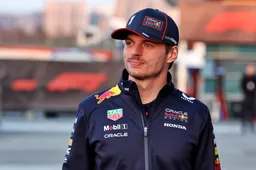
1
'People can see how good Max Verstappen is now', says former F1 driver
1187 times read
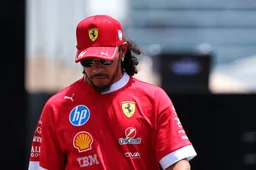
2
Former Red Bull Driver predicts early departure of Hamilton from Ferrari
1127 times read
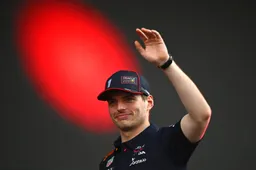
3
'Newey designs, Verstappen drives, and Alonso sporting director, hell of a team'
307 times read
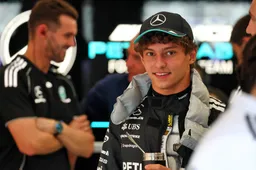
4
Antonelli would party with Alonso, Russell and Verstappen: 'They know what they are doing'
265 times read
